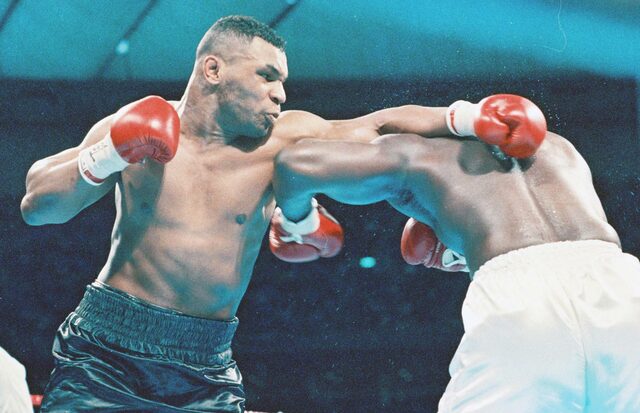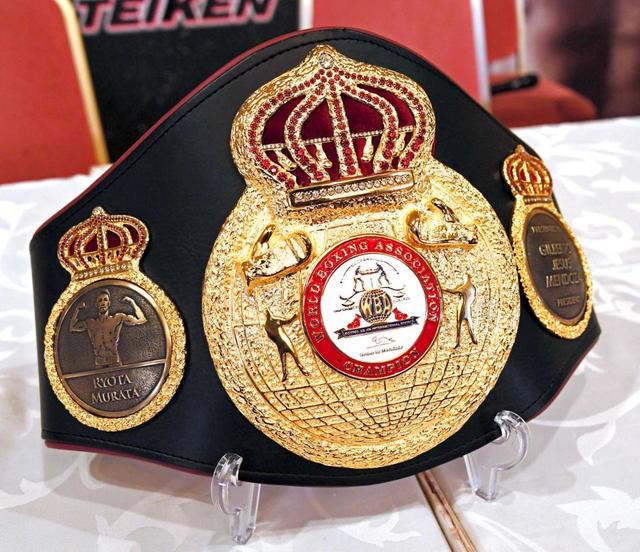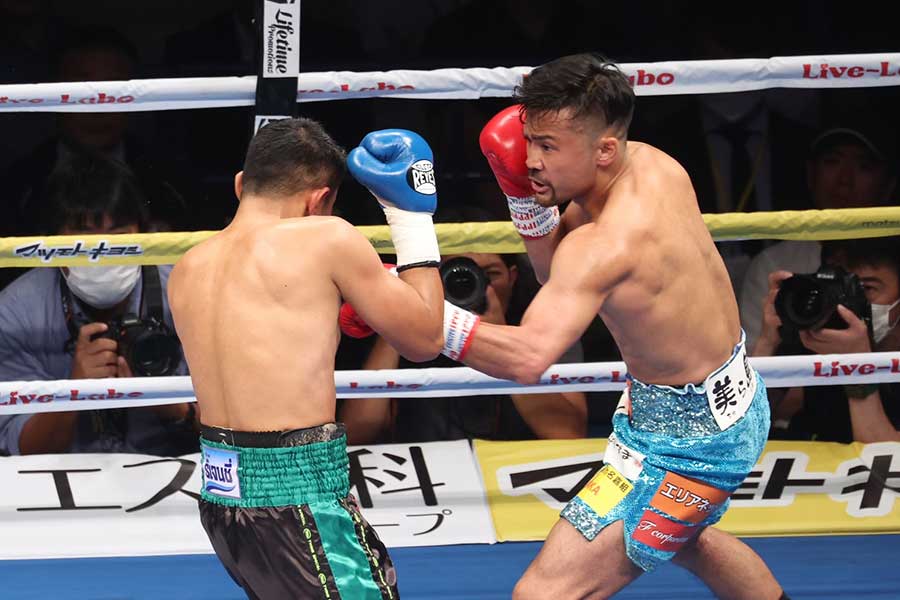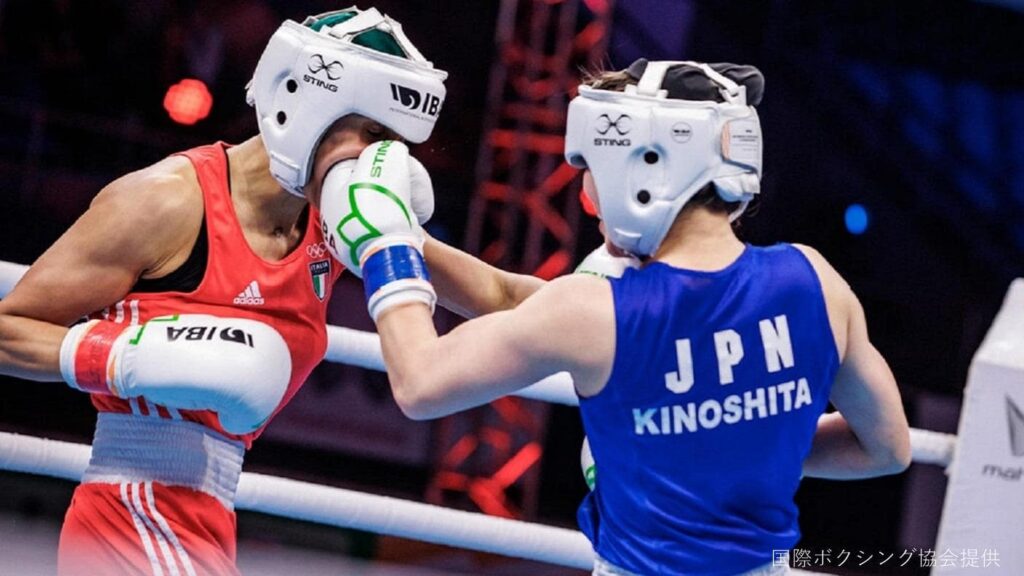
The Olympics are a place where many sports are competed on the world stage, and boxing is one of the sports that generates the most intense passion and drama.
This article takes a deep dive into the appeal of boxing in the Olympics, its history, rules, notable medalists, and its development as a sport.
We also provide in-depth analysis of the great Olympic games, the athletes’ careers, and the future of the sport.
If you’re a boxing fan, you’ll enjoy the exciting fights that take place in the Olympic rings even more by learning the story behind them.
Please enjoy this complete guide to the charm of Olympic boxing.
目次
Introduction to Olympic boxing
Boxing in the Olympics has a long history and has produced many dramatic moments.
This section delves into the history of Olympic boxing, its introduction, what it looked like in its early days, and its modern rules and categories.
History of boxing in the Olympics
Boxing was first introduced in 688 BC at the Ancient Olympics and was later added to the modern Olympic program at the 1904 St. Louis Olympics.
For many years, boxing has become one of the main attractions at the Olympic Games, with talented athletes from many countries competing on this stage.
In particular, Cassius Clay (later Muhammad Ali) winning the gold medal at the 1960 Rome Olympics is a historic moment that is widely known around the world.
Introduction and early history as a sport
The introduction of boxing to the Olympics was a major step towards official recognition as a sport.
Early Olympic games had much different equipment and rules than today, and saw many changes in the use of gloves and the number of rounds.
These early competitions show how boxing evolved into its current form.
Rules and categories
Modern Olympic boxing has clear rules and weight classes.
There are different weight classes for men and women, from flyweight to super heavyweight for men, and from flyweight to middleweight for women.
The match will take place in three rounds, with each round lasting three minutes.
The point system emphasizes technical skill and strategy, with accurate punching and defense highly valued.
Olympic boxing continues to inspire and excite sports fans around the world through its history, evolution, and modern competition format.
This competition is a test of not only technique but also courage and mental strength, and is a dream stage for many boxers.
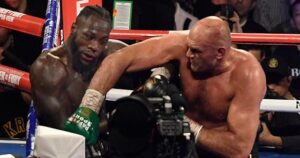
Boxing competition format and rules
Olympic boxing is known for its strict rules and unique competition format.
This section details modern Olympic boxing rules, how matches are conducted, how winners and losers are determined, and the historical evolution of the match format and its impact on the sport.
olympic boxing rules
Olympic boxing matches are held according to strict rules.
Athletes are required to wear equipment prescribed by the International Boxing Association (AIBA) and to avoid foul play.
Matches are usually divided into three rounds, with each round lasting three minutes.
Athletes will wear head guards and strict scoring will be done by a fair referee.
How the game progresses and how the winner is determined
Matches are scored based on a point system, with judges evaluating a fighter’s offensive accuracy, defensive technique, aggressiveness, and dominance in the ring.
At the end of each round, the judges will score points, and the fighter with the most points at the end of the match will be declared the winner.
In the case of a tie, additional criteria may apply. There are also wins by knockout or technical knockout.
Evolution of match format
The Olympic boxing match format has undergone several significant changes throughout its history.
Once fought over more rounds, the number of rounds has been reduced to improve safety and make the sport fairer.
Additionally, safety standards have been updated in recent years, such as the requirement to wear head guards in men’s competitions.
Changes throughout history and their impact
These changes are aimed at improving sports safety and viewer engagement.
The decision to eliminate head guards encouraged athletes to place greater emphasis on defending against blows to the head and encouraged the adoption of a more technical boxing style.
These rule changes have transformed Olympic boxing into a more dynamic and rewarding sport, while also contributing to the improvement of athletes’ skills.
The evolution of Olympic boxing rules and competition formats has adapted to the needs of modern spectators and athletes while preserving the essence of the sport.
This ensures that boxing continues to occupy an important place on the Olympic stage.
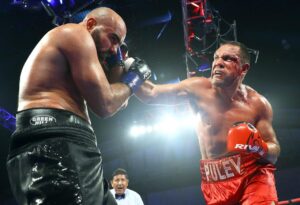
Past Olympic boxing medalists
The history of Olympic boxing has produced many notable medalists.
These athletes have etched their names into the history of sports as symbols of their respective eras.
Japanese boxers also achieved remarkable results at the Olympics, and their achievements occupy an important place in the history of Japanese boxing.
Introduction of famous medalists
Olympic boxing has seen talented athletes from many countries compete on this stage.
For example, Teofilo Stevenson and Felix Sabon of Cuba each won three gold medals.
They are considered some of the most successful athletes in Olympic boxing history ( Paris 2024 Olympic Games | NBC Olympics ) .
Players representing each era
Olympic boxing provided many historic moments.
Cassius Clay (later Muhammad Ali) won the gold medal at the 1960 Rome Olympics, which was the stepping stone to his later professional success.
Additionally, American athletes won multiple gold medals at the 1984 Los Angeles Olympics.
These achievements show how each country dominated the sport during their time.
Achievements of Japanese players
Many boxers from Japan have competed in the Olympics.
Athletes who have achieved particularly outstanding results have received high acclaim both domestically and internationally for winning medals.
Japanese boxers are known for their technical skills and mental strength, and are contributing to raising the level of Japanese boxing by leveraging their experience on the international stage ( World Boxing News ) .
These medalists often went on to great success in their professional boxing careers through Olympic boxing, demonstrating just how important the Olympic stage was to their careers.
Their legacy continues to inspire future generations of boxers.

Olympic boxing match
Olympic boxing has provided many memorable matches.
These matches hold a special place in the history of the sport due to their technical feats and tactical maneuvers.
Here we take a closer look at some of the most notable matches from past Olympics and their technical and tactical analysis.
memorable match
The match between Cassius Clay (Muhammad Ali) and Zigzignevich Pietrushki at the 1960 Rome Olympics is particularly famous as the match in which Ali won the gold medal.
Ali used his excellent footwork and speed to win, which gave him great confidence in what would become his professional career.
Notable games from past Olympics
At the 1988 Seoul Olympics, a match was held between Roy Jones Jr. and Park Si-hoon.
This match resulted in a scoring controversy and helped prompt a review of Olympic boxing’s scoring system.
Although Jones showed an overwhelming performance, he was content with a silver medal, which had a major impact on subsequent rule revisions.
technical analysis
In the Muhammad Ali (Cassius Clay) match, the timing and precision of his attacks were outstanding.
Ali deftly dodged his opponent’s attacks and responded with swift and accurate counter punches.
This tactic was a hallmark of his boxing style and was the moment when his talent blossomed on the Olympic stage.
Tactical view of the famous game
Roy Jones Jr.’s matches were characterized by his aggressive approach and constant pressure.
Jones captivated the audience by toying with his opponents with his multi-pronged attacks and high-speed combinations.
However, the result of that match brought into question the fairness and transparency of the sport, and left an important lesson for Olympic boxing.
These matches played an important role in the history of Olympic boxing and had a great influence on subsequent generations of athletes.
Through the evolution of technology and tactics, these famous battles will continue to be talked about for years to come.
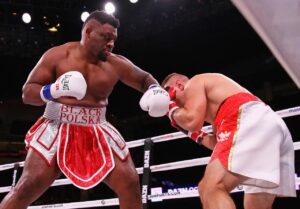
Boxing’s influence on the Olympics
The Olympics have had an important influence on the development of boxing as a sport.
We look at how the athletes who participated in the Olympics influenced their subsequent professional careers, and how the sport as a whole has evolved.
Development as a sport
The Olympics serve as a place for boxing to learn new techniques and international strategies.
By bringing together top athletes from around the world, different styles and techniques were exchanged, and the technical level of the sport as a whole improved.
The Olympics also helped popularize boxing worldwide, prompting many countries to strengthen their boxing programs.
The influence of the Olympics on boxing
The Olympics are one of the pinnacle stages for boxers.
Success at the Olympics has the effect of greatly increasing not only the reputation of the individual athletes but also their market value as professionals.
The experience of competing in the Olympics also provides athletes with the mental and technical maturity they need to compete in the professional world.
Career after the Olympics
Many Olympic boxers springboard their amateur success into a smooth transition to the pros.
For example, there are many athletes such as Muhammad Ali (Cassius Clay), George Foreman, and Oscar De La Hoya who made their mark at the Olympics and went on to great success in the professional ranks.
These athletes have used their Olympic experience to go on to achieve notable accomplishments in professional boxing.
Athletes turning professional after participating in the Olympics
Olympic experience is a valuable asset for athletes, and in many cases it is expected that they will be able to hit the ground running when they turn professional.
Skills honed in the Olympics and international experience provide a direct competitive advantage in the professional ring, with many athletes finding success soon after their debut.
In this way, the Olympics have a huge impact not only on the careers of individual boxers, but also on the development of the sport as a whole.
The experience on that stage helps players improve their skills, grow psychologically, and lead to professional success.

Olympic exclusion debate and future
The future of boxing in the Olympics is uncertain.
There have been long-standing issues between the International Boxing Association (IBA) and the International Olympic Committee (IOC), with concerns over governance, transparency, financial issues and referee integrity being cited, among others.
If these issues are not resolved, it is increasingly likely that boxing will be removed from the program for the 2028 Los Angeles Olympics ( Sky Sports ) ( Boxing Scene ) .
Summary of discussion
Although the IBA has made reforms and claims to have addressed some issues, the IOC still does not consider the IBA’s problems to be fully addressed.
In particular, continuing concerns over refereeing and financial transparency make reintegrating the IBA into the Olympic movement difficult.
Problems and reform proposals for boxing competitions
The IBA needs to reform to become more transparent and fair in its operations.
In particular, there is a need to address the lack of transparency in the electoral process and to improve the quality of referees.
If these reforms are successful, it will be possible for boxing to retain its status as an Olympic sport.
Future as a sport
The IOC wants a new International Boxing Federation to be established, which is key to boxing’s future as an Olympic sport.
Boxing could be included in the 2028 Olympics if the new organization is approved.
However, there are many challenges before a new federation can be established and recognized.
Challenges and prospects facing boxing
Boxing now urgently needs to improve governance and establish a new international federation to avoid exclusion from the Olympic program.
How the IBA responds to this process will have a major impact on the future of the sport.
It is hoped that efforts will continue to resolve these issues and keep boxing on the Olympic stage.
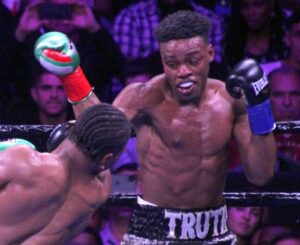
A guide to watching Olympic boxing as a fan
Watching boxing at the Olympics is a great opportunity to experience the excitement and strategic beauty of the sport.
This guide details how to enjoy Olympic boxing, what to watch, tips for attending as a fan, and what to expect at the next Olympics.
How to enjoy watching games
When watching Olympic boxing, understanding each fighter’s technique and strategy is key.
Researching a fighter’s background and previous performance before a match will help you understand how they move in the ring and what tactics they will use.
Also, knowing the rules of the match and how points are awarded is important in order to enjoy the game more deeply.
Match highlights and tips for fan participation
In a boxing match, not only the attacking techniques, but also the fighters’ defensive techniques and movements in the ring are important highlights.
You can understand the depth of boxing by observing how fighters dodge their opponent’s attacks and secure advantageous positions.
Additionally, the Olympics are filled with drama about athletes competing on behalf of their countries, and if you pay attention to the stories behind them, you can enjoy watching the games even more.
Outlook for the next Olympics
It is expected that new rules and technological advances will be introduced at the next Olympics.
You will also be able to see the rise of new star athletes and the growth of athletes who were active in the previous Olympics.
As a fan, by anticipating and understanding these changes, you will be able to enjoy the game with deeper knowledge.
What to expect at the next Olympics
As technology evolves, we can expect to see new trends in strategies and training methods.
Additionally, reforms are underway to improve the governance and transparency of boxing, and it will be interesting to see how this impacts the sport.
By increasing the fairness of the competition, more countries are expected to participate, increasing the international appeal of the competition.
We hope this guide will help you enjoy watching Olympic boxing and prepare you to make the most of the great moments at the next Olympics.
